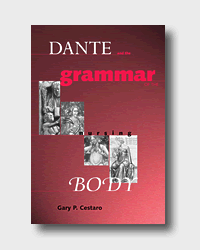|
ABOUT US
Program description and history, contact and visitor information.
ACADEMIC RESOURCES
Conferences, lecture series, visiting professorships, courses, and library tours.
LIBRARY RESOURCES
In support of collection development in Dante and Italian Studies.
PUBLICATIONS
The Devers Series in Dante and Medieval Italian Literature, published by the University of
Notre Dame Press.
DIGITAL PROJECTS
The ItalNet Consortium for the creation of online scholarly resources in Italian studies.
GRANTS & SCHOLARSHIPS
In support of research and teaching, for ND students, faculty, and visiting researchers.
LINKS
Other Web resources related to Dante studies.
|




